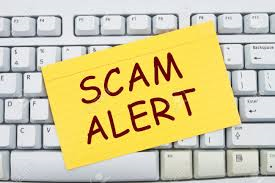Local News
Scam Spotlight: PayPal Scams Remain Popular

DATCP continues to receive calls from consumers who were targeted by scammers using several variations of ‘PayPal scams.’ The scammers’ main goal is to convince consumers to send them money, but a secondary goal is to steal personal information or private data such as bank account numbers and account login details.
If a consumer receives an unfamiliar PayPal invoice, they shouldn’t react right away. Instead, they should pause, check their records to see if they made any purchases that match the description, and talk about the invoice with someone they trust. Consumers should only send money for purchases they know are real.
If a consumer is overpaid through PayPal and the sender asks them to wire back the difference, it is likely a scam. The scammer may have used stolen money to send the payment and is trying to ‘clean it’ by scamming yet another target. Instead of sending any money back to the sender or another company, consumers should consider canceling the order completely.
If a consumer is asked to pay extra fees through PayPal for prize winnings, shipping costs, unpaid taxes, business expenses for a new job, or for any other reason that seems unusual, uncommon, or unfamiliar, they should stop right away. It is very unlikely that legitimate sources will ask for these payments to be sent through PayPal.
Consumers should not open any links or use any contact information provided in these requests – they could be phishing or scam attempts. Instead, only use information found on PayPal’s official website. If consumers receive a message that claims to come from PayPal, they can verify whether it was truly sent by PayPal by contacting the company’s Help Center, also found on the official website.


